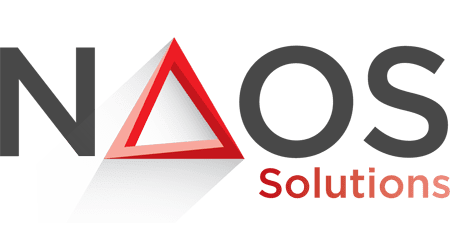The Egyptian business landscape is shifting. Gone are the days of static, in-house HR departments struggling to keep up with:
- the economic uncertainty,
- changing labor laws,
- and the ever-present challenge of efficient scaling.
The solution? Outsourcing HR.

This isn’t just a passing trend. The global HRO market is booming, projected to reach $46 billion by 2028. The MENA region, including Egypt, will soon exceed the global average. It begs the question: what makes outsourcing HR so successful?
This article will examine how outsourcing HR is a winning strategy for modern Egyptian companies.
Find more information about HR Outsourcing in our previous article: 10 Reasons To Outsource HR Functions
UNDERSTANDING THE HR OUTSOURCING LANDSCAPE IN EGYPT
HR outsourcing involves partnering with specialized providers to manage specific HR tasks, including:
- Payroll: Ensuring accurate and timely salary payments, deductions, and tax filings.
- Recruitment: Attracting and vetting top talent that aligns with your company’s needs.
- Training & Development: Creating and delivering customized training programs to upskill your workforce.
- Employee Relations: Employee onboarding, performance reviews, and conflict resolution.
This strategic shift to outsourcing HR is gaining much traction in Egypt and the broader MENA region. Research by Boston Consulting Group and Forward MENA projects HR outsourcing to grow by 8% annually in MENA, compared to 5.6% globally.
This surge in HR outsourcing within the MENA region, specifically in Egypt, is for a good reason. The practice has tons of benefits for local companies, particularly in the face of:
- Economic Uncertainty: Outsourcing HR allows companies to adjust their workforce and optimize costs in response to economic fluctuations. For instance, Egypt’s inflation rate is predicted to rise from 24.4% to 32% in 2024.
- Labor Law Changes: Specialized HR firms stay updated on evolving labor laws to ensure your company remains compliant and avoids costly penalties. For example, Egypt’s laws about parental leave, sick leave, and notice periods have recently changed.
- Scalability Challenges: Outsourcing allows businesses to scale their HR operations seamlessly. This allows them to handle employee onboarding and offboarding as their workforce grows efficiently.
Read our blog article on The Rise of Human Resources Outsourcing in Egypt and the MENA Region for more information.
Economic Uncertainty and HR Outsourcing
The data clarifies that Egypt’s economic landscape is navigating choppy waters.
Inflation is rising, currency devaluation is a constant concern, and businesses are bracing for potential economic uncertainties. The Egyptian pound recently fell sharply against the dollar, going from 30 EGP per dollar to about 47 EGP. As Egypt contends with rising inflation, the business landscape becomes increasingly volatile.
Such economic conditions compel companies to reassess their financial strategies, particularly those related to managing labor costs, among an organization’s most significant expenses.
Outsourcing HR functions emerges as a strategic response to this challenge. By partnering with HR service providers, companies can convert fixed HR costs into variable costs, enabling them to scale services up or down based on current financial conditions and business needs. This flexibility is vital in high-inflation environments where budgeting becomes unpredictable.

In such an environment, cost efficiency and intelligent resource allocation are crucial. Outsourcing HR can be a game-changer as it provides economies of scale. These firms can offer payroll and compliance management services at lower costs than maintaining an in-house team. Payroll processing, recruitment, and training programs require a team of experts and infrastructure.
An HR outsourcer can serve multiple clients and more effectively spread out costs. By outsourcing specific HR functions, companies can achieve significant cost savings.
Partnering with a specialized HR provider will decrease the need for in-house resources (an average generalist HR worker in Egypt makes about 9,000 EGP per month), reducing fixed costs in the long run.
Other than that, outsourcing HR leaves room for tremendous resource flexibility. Companies can scale their HR operations up or down as needed without the burden of hiring or laying off permanent staff. This makes outsourcing HR beneficial for both the employer and the employee.
Navigating Labor Law Changes with Outsourced HR
In February 2022, the Egyptian Senate approved the 2022 labor law draft. The law is intended to replace the previous 2003 labor law and align with the current labor market and international labor agreements.
However, the new Egyptian labor law can only be enacted once the House of Representatives clears the bill and the President gives his assent. Let’s look at some of the foreseeable changes in Egypt’s labor laws:
- Paternity Leave: Employers must grant eligible employees one day’s paid paternity leave.
- Maternity Leave: The paid maternity leave period will be extended from 90 to 120 days.
- Parental Leave: Employers with over 25 employees must grant two years of unpaid parental leave to eligible new mothers.
- Casual Leave: The annual casual leave will increase from six to seven days.
- Sick Leave: Sick leave will increase from six to 12 months.
- Payroll Obligations: Employers will contribute 0.25% of payroll to a central training fund, and minimum annual pay increases equal to 3% of the covered pay ceiling for social security contributions would be guaranteed.
- Notice Period: The notice period under fixed-term contracts would decrease from three to two months.
Recent changes, such as amendments to Article 253 imposing hefty fines for late wage payments, improve employee rights and legal compliance.
Furthermore, the government has decreed three successive minimum wage increases in the private sector between January 2023 and April 2024. Companies must be ready for constant adaptation.
Keeping up with these evolving legal matters can be tricky for in-house HR teams. They must stay updated on all complex legal changes – a difficult task for smaller HR departments. Non-compliance can lead to costly penalties, reputational damage, and legal repercussions.
This is where outsourcing HR saves the day.

Specialized HR providers stay at the forefront of Egyptian labor law changes – your company will always be compliant and steer clear of legal pitfalls. Their dedicated teams constantly monitor changes and update internal processes accordingly. This expertise frees up your in-house HR team to focus on strategic initiatives instead.
This adaptation to legal shifts will be easier and faster. Specialized HR outsourcing partners grant you the agility to implement changes quickly so your company stays compliant even with short-notice legal changes.
Scalability and HR Outsourcing
Scalability is the lifeblood of any growing business.
As your company expands, so do your HR needs. Hiring extra staff, managing payroll issues, and staying compliant with evolving laws can quickly become overwhelming for an in-house HR team.
For instance, 24% of HR teams find it hard to scale their company’s online tools to accommodate new employees. Meanwhile, 40% are limited by their strict budgets, staffing shortages, and time constraints.
This is where outsourcing HR becomes the key to seamless scalability. By partnering with an outsourced HR provider, you can access a dynamic workforce that can adapt to your changing needs.
Do you need to quickly onboard a surge of new employees during a growth phase? Your HR provider will efficiently handle the recruitment, onboarding, and payroll processes, and your operations will remain uninterrupted.

On the other hand, during periods of contraction, you can quickly scale back outsourced services without the burden of layoffs.
Thanks to this flexibility, you can avoid the costs associated with recruitment, training, HR software, and a dedicated office space. Instead, you pay only for the services you need when you need them – your budget will only focus on core business activities.
Additional Benefits of Outsourcing HR
Outsourcing HR delivers far more than just cost savings and scalability. By partnering with HR providers, Egyptian companies gain access to:
Advanced Technology and Expertise
Top HR outsourcing firms have access to cutting-edge technology and best practices, often unavailable to smaller in-house teams. This leads to streamlined processes, automated tasks, and access to sophisticated HR software without the significant upfront investment.
Better HR Service Delivery
Specialized HR outsourcers can dedicate entire teams to specific HR functions, guaranteeing expertise and efficiency in recruitment, training, and compliance.
It also translates to faster turnaround times, accuracy, and better service quality. Smaller in-house teams are often too busy to focus on these improvements. 75% of HR professionals feel their department is working beyond capacity and stretched too thin.
Improved Employee Experience
Outsourcing HR allows your in-house team to focus on more critical initiatives, such as employee engagement and performance management, which are declared top priorities for HR teams.
This way, they can deliver a more personalized and value-packed employee experience, leading to higher satisfaction rates within your workforce. Don’t take our word for it – there’s research to back this up.
HOW TO START WITH HR OUTSOURCING?
The decision to outsource HR functions is a strategic one. Here’s a step-by-step guide to get you started:
Step 1: Conduct a Needs Assessment
The foundation of a successful HR outsourcing strategy begins with a thorough needs assessment that is closely aligned with your company’s strategic business objectives.

This crucial step ensures that outsourcing decisions support overall business goals and enhance operational efficiency. Here’s how to conduct a detailed and practical needs assessment:
- Align with Strategic Business Objectives
Initiate the assessment by clearly understanding your company’s long-term goals and how the HR function supports these objectives. This alignment helps identify which HR tasks are critical to your core business strategies and which can be more effectively managed through outsourcing.
- Review Current HR Functions
Catalog all current HR activities and processes, noting where your team excels and where it faces challenges. This comprehensive review should cover all aspects of HR, including recruitment, payroll, employee engagement, compliance, employer branding, and training.
Check a helpful resource we have created to implement and track recruitment KPIs.
- Analyze HR Workload and Efficiency
Evaluate the workload associated with each HR function to identify inefficiencies or bottlenecks. For example, if payroll processing is consistently delayed due to limited staff, this function might be a prime candidate for outsourcing.
- Assess HR Costs
Determine the financial impact of managing HR internally, including salaries, benefits, technology investments, and compliance costs. This financial analysis will provide a baseline for comparing the potential cost savings of outsourcing.
- Identify Scalability and Flexibility Needs
Reflect on your company’s growth projections and how they might affect your HR needs. Does your business experience seasonal workforce fluctuations, or do you expect rapid scaling? Outsourcing can provide the necessary flexibility to handle such variations efficiently.
- Evaluate Risk Management
Consider the risks associated with your current HR operations, especially in compliance with evolving labor laws. Assess whether your in-house capabilities can manage these risks or if an outsourcing partner could provide more robust compliance assurance.
- Gather Stakeholder Input
Engage with key stakeholders, including executives and department heads, to gather insights on the effectiveness and challenges of current HR operations. Their feedback can highlight specific areas where outsourcing might bring improvements.
- Set Specific Objectives for Outsourcing
Clearly define your objectives for outsourcing HR functions: reducing costs, accessing advanced technology, improving service quality, or allowing your team to focus on strategic tasks. These goals should directly support your broader business objectives.
- Prioritize Based on Impact and Strategic Fit
Rank the HR functions identified for potential outsourcing based on their impact on your business and their strategic fit with your objectives. Prioritizing these areas will guide you in selecting the suitable functions to outsource for maximum benefit.
Step 2: Choose the Right HR Outsourcing Partner
Don’t choose your first option – research and shortlist multiple HR outsourcing firms with a proven track record in the Egyptian market. Look for providers with:
- Expertise in your specific industry.
- Access to cutting-edge HR technology.
- A firm grasp of Egyptian labor laws and regulations.
Step 3: Transitioning with Best Practices
Once you’ve chosen your partner, you can guarantee a smooth transition by:
- Establishing a Service Level Agreement (SLA) outlining specific tasks, deliverables, and communication protocols.
- Facilitating easy knowledge transfer between your in-house HR team and the outsourcing team for seamless continuity.
- Integrating the provider’s HR systems with your existing infrastructure for efficient data flow and reporting.
- Discussing the transition with your employees. Address any concerns, and ensure a smooth onboarding experience with the new HR processes.
CONCLUSION
The Egyptian business landscape is shifting, and HR outsourcing is the only strategic solution. Its benefits—cost savings, scalability, and better service delivery—are invaluable in navigating Egypt’s economic uncertainty.
Ready to supercharge your company’s growth? Stay caught up. Contact our expert, and bring the future of HR in your company.

